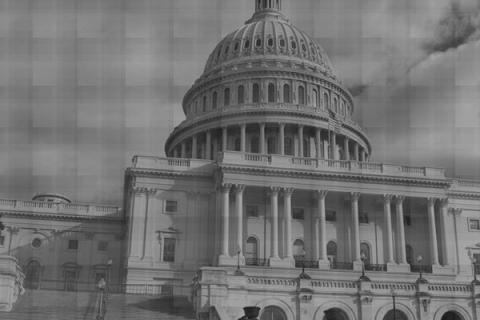Whether or not you support Proposition 14, the conduct of the California legislature should make you furious. With complete disregard for the principles of “due process” and “fair trial,” political leaders inside the California Legislature struck a backroom deal whereby the opponents of Proposition 14 would sue the Secretary of State over the description of the Proposition to appear on June’s primary ballot without informing the proponents of the lawsuit.
In an appalling abuse of legislative power, the California legislature used the California School Employees Association (CSEA), a special interest group that has given over $421,000 to the Democratic Party this year alone, to file a lawsuit last week against…the California Legislature. Thereby, the “State” would agree to the opponents' stipulated terms, forcing a change in terms by judicial mandate without giving the opposition an opportunity to object.
Why?
In 2009, the “Open Primary” initiative was placed on this year’s June ballot as Proposition 14. It would change the current primary system from the current party-oriented system (a runoff for political partisans) to an open, voter-oriented system (a general runoff that ignores party labels). The top-two vote getters would be placed on the general ballot under the new system, regardless of party affiliation.
The lawsuit would alter the way the initiative is presented to voters:
The original language approved by the legislature last year:
Elections. Primaries. Greater Participation in Elections.
Reforms the primary election process for congressional, statewide and legislative races. Allows all voters to choose any candidate regardless of the candidate’s or voter’s political party preference. Ensures that the two candidates receiving the greatest number of votes will appear on the general election ballot regardless of party preference.
The CSEA’s proposed language:
Changes primary election process. Changes primary election procedures for congressional, legislative and statewide races. Allows all voters to choose any candidate regardless of the candidate’s or voter’s political party preference. Does not require candidates to disclose their registered political party preference. Eliminates political parties’ rights to be on the general election ballot. Ensures that only the two candidates receiving the greatest number of votes will appear on the general election ballot regardless of their registered political party preference. Does not change primary election for President, party committee officers, and nonpartisan offices.
Why didn’t the CSEA sue the proponents of Proposition 14 instead of the legislature? The answer is too easy. Because the supporters of the Open Primary are the real interested party and would object to the change.
So, powerful legislators opposed to the Proposition tried to sneak an ace down their sleeves by abusing their legislative power. But, they got caught. And this is where it gets really good (or bad, depending on how you want to view it).
Last Friday, Senator Abel Maldonado was informed of the ploy by an open primary supporter who read about the lawsuit in an online blog. The message was immediately relayed to attorney Marguerite Leoni, representing Maldonado and “Yes on 14 – Californians for an Open Primary.” Ms. Leoni contacted CSEA’s attorney, Richard Miadach, to inquire whether the petitioner would agree to add “Yes on 14” as an intervening party to the suit because of their obvious interest in the outcome. She also contacted Attorney Jeff De Land in the Office of Legislative Counsel to inquire the same of the respondent. Both parties refused to stipulate to the intervention.
De Land, an attorney paid for by taxpayers, and whose duties are to represent the California legislature also informed Ms. Leoni that his “client” was actually the Joint Rules Committee. He also refused to give Senator Maldonado legal advice. What De Land did not inform Ms. Leoni was that his “client” had already reached a stipulation for entry of judgment with CSEA.
In other words, members of the Joint Rules Committee, in concert with Legislative Counsel Boyer-Vine, directed public attorneys to not only play dead in the face of a lawsuit they helped orchestrate, but to refuse counsel to members of the legislature and actively oppose efforts to allow the real opposition to have their voice heard before the court.
Proponents of the Open Primary claim that the Proposition will take power away from partisan politicians by making them more accountable to everyday voters. Whether or not the Proposition will actually have that effect, the opposition has proved that they are not interested in claims, ethics, or the political process.
The “Yes on 14” campaign got the first last laugh on Tuesday when the California Sacramento Superior Court ruled in favor of supporters of Proposition 14 to allow the campaign to intervene in the case and participate in the hearing. The hearing is scheduled for 1:30pm today in Sacramento.
